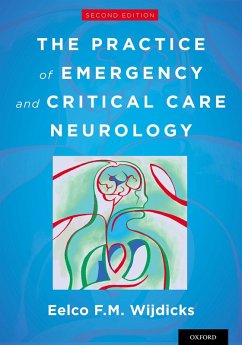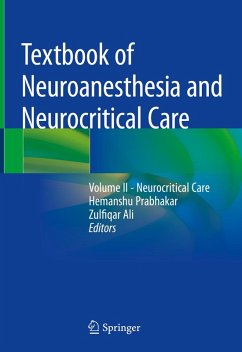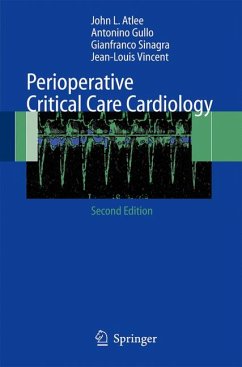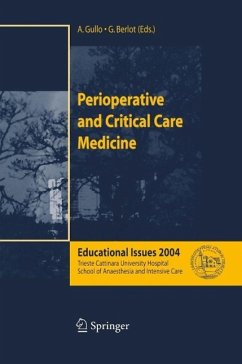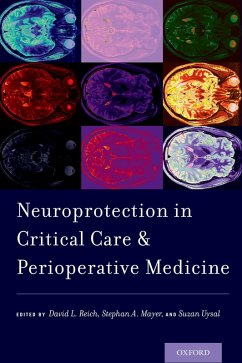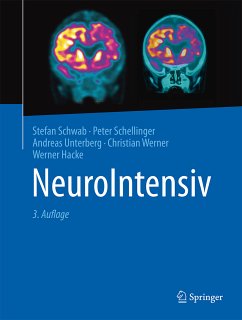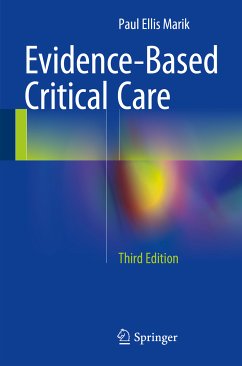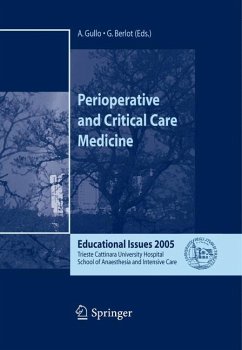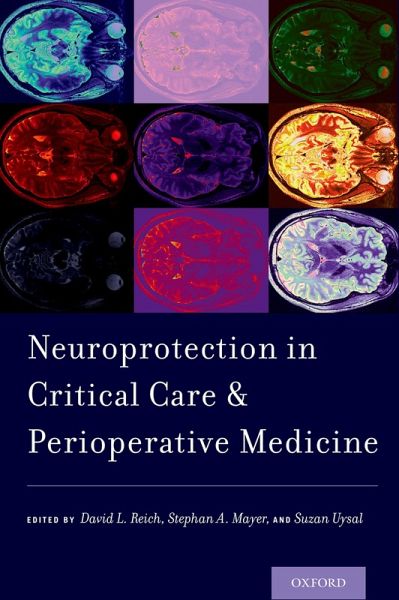
Neuroprotection in Critical Care and Perioperative Medicine (eBook, PDF)
Versandkostenfrei!
Sofort per Download lieferbar
45,95 €
inkl. MwSt.
Weitere Ausgaben:

PAYBACK Punkte
23 °P sammeln!
Neuroprotection is becoming an increasingly recognized and important part of critical care and perioperative medicine. As human beings survive increasingly severe life-threatening injuries and complex surgical interventions, it has become clear that neurologic injury and dysfunction is a primary driver of long-term outcome and disability. Neuroprotection is currently under-recognized as the primary objective in promoting recovery from life-threatening injuries, illnesses, and procedures. To address this knowledge gap, Neuroprotection in Critical Care and Perioperative Medicine provides a conci...
Neuroprotection is becoming an increasingly recognized and important part of critical care and perioperative medicine. As human beings survive increasingly severe life-threatening injuries and complex surgical interventions, it has become clear that neurologic injury and dysfunction is a primary driver of long-term outcome and disability. Neuroprotection is currently under-recognized as the primary objective in promoting recovery from life-threatening injuries, illnesses, and procedures. To address this knowledge gap, Neuroprotection in Critical Care and Perioperative Medicine provides a concise review of the current state of the art of clinical care and research. Within the context of critical care, the specific topics covered will include the primary forms of brain injury on which neuroprotection research and intervention has traditionally focused, such as traumatic brain injury, cardiac arrest, acute ischemic stroke, and intracranial hemorrhage, as well as CNS injuries related to sepsis and acute respiratory distress syndrome, mechanical circulatory support, and premature birth. Within the context of perioperative care, the specific topics covered will include anesthetic and perioperative strategies to reduce brain injury from cardiac surgery, aortic surgery and endovascular repair, carotid endarterectomy, vascular and endovascular neurosurgery, and other major surgical procedures.
Dieser Download kann aus rechtlichen Gründen nur mit Rechnungsadresse in A, B, BG, CY, CZ, D, DK, EW, E, FIN, F, GR, HR, H, IRL, I, LT, L, LR, M, NL, PL, P, R, S, SLO, SK ausgeliefert werden.




